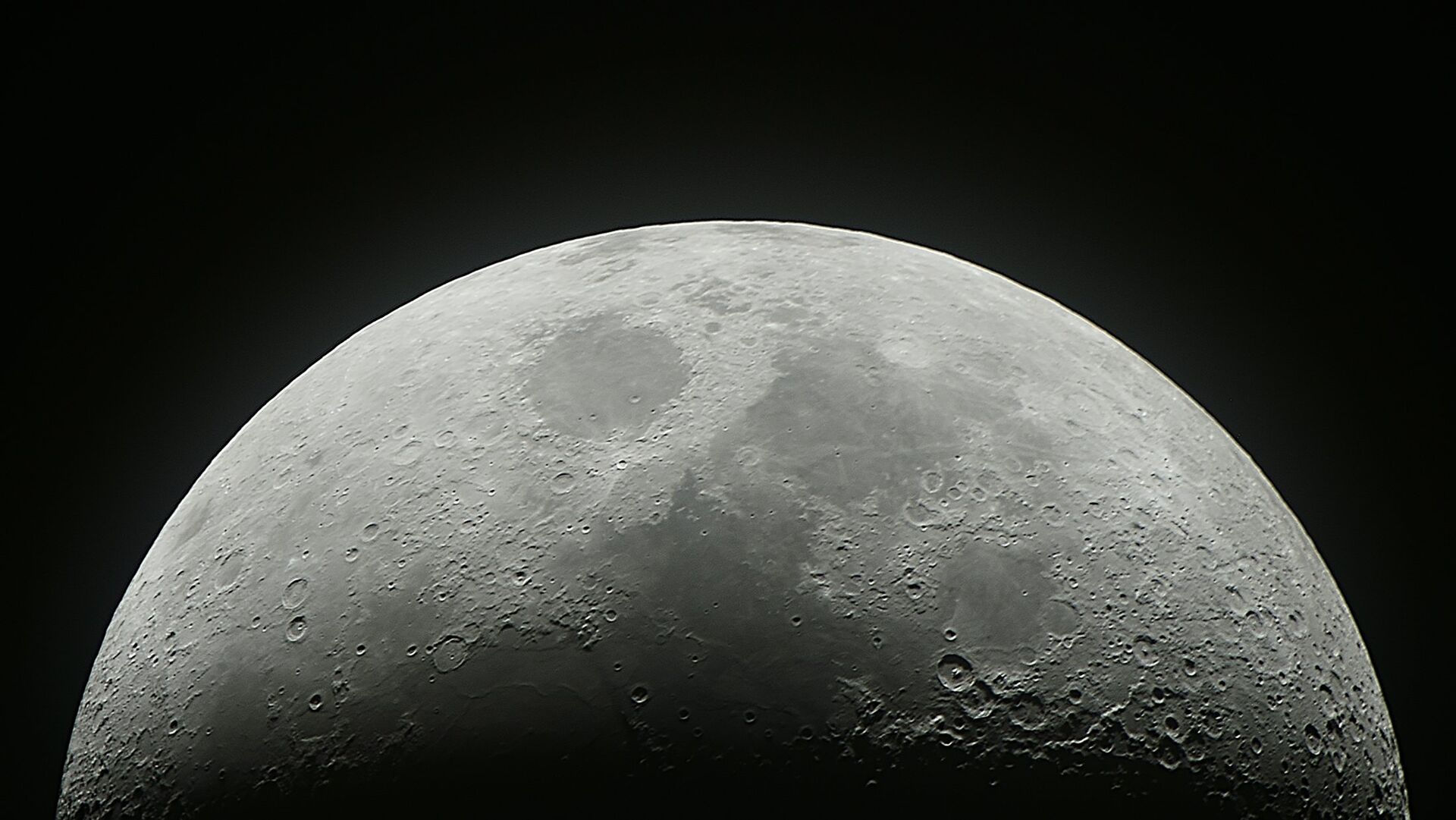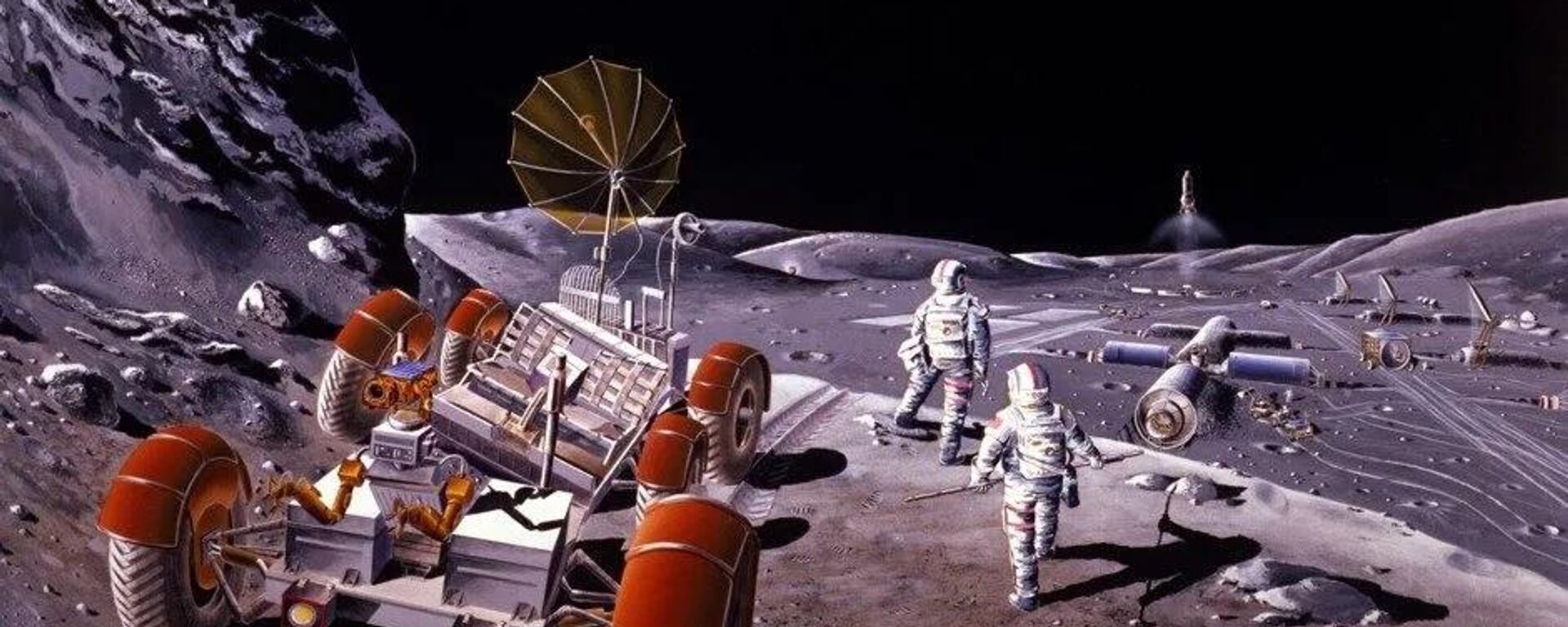https://sputnikglobe.com/20220519/likely-origins-of-lunar-ice-uncovered-by-scientists-1095636625.html
Likely Origins of Lunar Ice Uncovered by Scientists
Likely Origins of Lunar Ice Uncovered by Scientists
Sputnik International
Ice deposits that may be hidden beneath a layer of lunar dust could potentially be exploited by future expeditions to the Moon, researchers suggest. 19.05.2022, Sputnik International
2022-05-19T15:11+0000
2022-05-19T15:11+0000
2022-05-19T15:11+0000
science & tech
moon
ice
study
https://cdn1.img.sputnikglobe.com/img/105978/18/1059781814_0:0:2200:1239_1920x0_80_0_0_6d4104b8bbe0a77a5b3739adf675fc31.jpg
A new study conducted by researchers from the University of Colorado Boulder postulates that volcanic activity that occurred on the Moon aeons ago may have led to the emergence of thick ice sheets on the lunar surface.In their research, published in The Planetary Science Journal, the team explored the possibility that volcanic outgassing could have led to the formation of surface ice on Earth’s only natural satellite.Using computer simulations in an attempt to gauge the processes that transpired during the Moon’s distant volcanic past, the researchers determined that vast amounts of water vapour were expelled by volcanoes from the lunar interior and became ice that may still exist in the craters that dot the Moon’s landscape.Paul Hayne, assistant professor at the university’s Department of Astrophysical and Planetary Sciences and Laboratory for Atmospheric and Space Physics and co-author of the study, even suggested that the said ice stores could potentially be exploited by future manned missions to the Moon, as the frozen water could be used for drinking or making rocket fuel.The team’s findings suggest that as much as 18 quadrillion pounds of volcanic water on the Moon could have ended up condensing as ice, and that much of that frozen water may remain to this day, although a majority of the ice could be buried beneath a layer of lunar dust.
https://sputnikglobe.com/20220506/how-can-lunar-soil-help-people-live-on-the-moon-1095314386.html
Sputnik International
feedback@sputniknews.com
+74956456601
MIA „Rossiya Segodnya“
2022
News
en_EN
Sputnik International
feedback@sputniknews.com
+74956456601
MIA „Rossiya Segodnya“
Sputnik International
feedback@sputniknews.com
+74956456601
MIA „Rossiya Segodnya“
science & tech, moon, ice, study
science & tech, moon, ice, study
Likely Origins of Lunar Ice Uncovered by Scientists
Ice deposits that may be hidden beneath a layer of lunar dust could potentially be exploited by future expeditions to the Moon, researchers suggest.
A new study conducted by researchers from the University of Colorado Boulder postulates that volcanic activity that occurred on the Moon aeons ago may have led to the emergence of thick ice sheets on the lunar surface.
In their research, published in The Planetary Science Journal, the team explored the possibility that volcanic outgassing could have led to the formation of surface ice on Earth’s only natural satellite.
Using computer simulations in an attempt to gauge the processes that transpired during the Moon’s distant volcanic past, the researchers determined that vast amounts of water vapour were expelled by volcanoes from the lunar interior and became ice that may still exist in the craters that dot the Moon’s landscape.
Paul Hayne, assistant professor at the university’s Department of Astrophysical and Planetary Sciences and Laboratory for Atmospheric and Space Physics and co-author of the study, even suggested that the said ice stores could potentially be exploited by future manned missions to the Moon, as the frozen water could be used for drinking or making rocket fuel.
"It’s possible that 5 or 10 meters below the surface, you have big sheets of ice", he said as quoted in an article published on the university’s website.
The team’s findings suggest that as much as 18 quadrillion pounds of volcanic water on the Moon could have ended up condensing as ice, and that much of that frozen water may remain to this day, although a majority of the ice could be buried beneath a layer of lunar dust.


